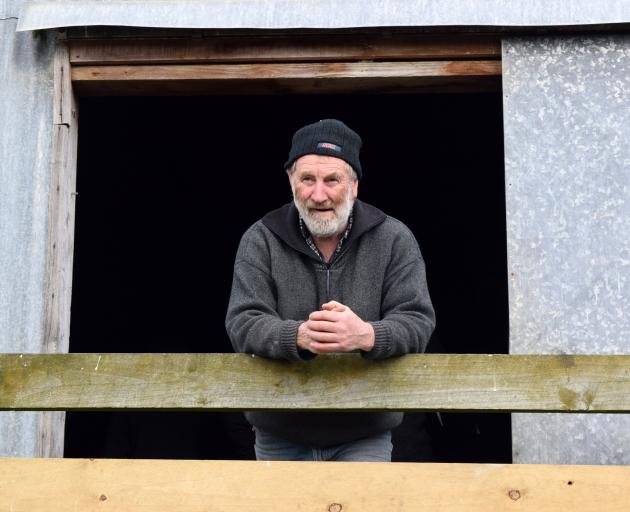Science
Study Tracks Facial Eczema Impact on New Zealand Sheep Farms

A new study by Beef + Lamb New Zealand is examining the impact of facial eczema on sheep farms across the country, utilizing fresh sheep manure to gain insights into the disease’s presence. The research, led by principal scientist Cara Brosnahan from Wellington, is now in its third and final season. Preliminary findings have already indicated low levels of facial eczema spores on four farms in Otago and one in Southland during earlier phases of the study.
Facial eczema, caused by toxic fungal spores typically found in pasture, poses significant risks to grazing livestock. All species of grazing animals, except horses, can contract the disease when they ingest a sufficient amount of these spores, primarily present in ryegrass. Farmers participating in the study are promptly informed when spores are detected in their manure samples, allowing them to monitor and manage the risk more effectively. Should spore counts rise, veterinarians may be consulted to address the potential health issues.
The study aims to clarify the conditions under which spore levels may increase. Dr. Brosnahan noted that livestock might not exhibit clinical signs if they consume low levels of spores. Signs of infection can manifest as reduced productivity or increased empty rates during pregnancy scanning. Clinical evidence has been observed across regions from Northland to the West Coast, with over half of the manure samples from the upper South Island showing clinical signs of the disease.
Understanding and Managing Facial Eczema Risks
Researchers are looking into various factors that could influence the risk of facial eczema, such as farm elevation, pasture height, and spore counts from neighboring farms. The final season of the study is crucial for confirming these relationships and enhancing the understanding of this significant issue. Participation is free and straightforward, with farmers collecting sheep manure samples biweekly from October to May. Beef + Lamb New Zealand provides sampling kits and covers postage costs.
In return for their participation, farmers receive comprehensive results that help them assess their risk of facial eczema. They also benefit from a $40 subsidy on tested faecal egg counts and may be selected for additional monthly testing throughout the study period. The overall economic impact of facial eczema on the sector exceeds $330 million annually, making the study vital for the future of sheep farming in New Zealand.
The Call for Increased Participation
Dr. Brosnahan emphasized the importance of expanding participation, especially from farmers who have not yet detected facial eczema on their farms. “These results help build our understanding of this devastating disease,” she stated. The disease can lead to liver damage in livestock, resulting in reduced fertility, weight loss, lower milk production, and in severe cases, death.
Sheep farmer Graham Evans from Barr Falls Farm in Owaka is actively participating in the study, collecting and sending fresh manure samples since its inception. He has not found any facial eczema spores on his property, but he acknowledges the inevitability of the disease spreading southward. “It doesn’t matter whether you believe in climate change or not. It’s going to happen,” he remarked.
Evans hopes more farmers in the region will take part in this initiative, as environmental conditions can vary widely across different sheep farming areas, such as the Catlins and Central Otago. He believes that collective efforts now could be critical for future generations of farmers, emphasizing the need for proactive management to mitigate the disease’s effects.
By participating in the study, Evans and other farmers are not only safeguarding their own livestock but also contributing to a national solution for an issue that poses a significant threat to New Zealand’s agricultural sector.
-

 World1 week ago
World1 week agoPrivate Funeral Held for Dean Field and His Three Children
-

 Top Stories2 weeks ago
Top Stories2 weeks agoFuneral Planned for Field Siblings After Tragic House Fire
-

 Sports3 months ago
Sports3 months agoNetball New Zealand Stands Down Dame Noeline Taurua for Series
-

 Entertainment3 months ago
Entertainment3 months agoTributes Pour In for Lachlan Rofe, Reality Star, Dead at 47
-

 Entertainment2 months ago
Entertainment2 months agoNew ‘Maverick’ Chaser Joins Beat the Chasers Season Finale
-

 Sports3 months ago
Sports3 months agoSilver Ferns Legend Laura Langman Criticizes Team’s Attitude
-

 Sports1 month ago
Sports1 month agoEli Katoa Rushed to Hospital After Sideline Incident During Match
-

 World2 weeks ago
World2 weeks agoInvestigation Underway in Tragic Sanson House Fire Involving Family
-

 Politics2 months ago
Politics2 months agoNetball NZ Calls for Respect Amid Dame Taurua’s Standoff
-

 Top Stories2 weeks ago
Top Stories2 weeks agoShock and Grief Follow Tragic Family Deaths in New Zealand
-

 Entertainment3 months ago
Entertainment3 months agoKhloe Kardashian Embraces Innovative Stem Cell Therapy in Mexico
-

 World4 months ago
World4 months agoPolice Arrest Multiple Individuals During Funeral for Zain Taikato-Fox





















